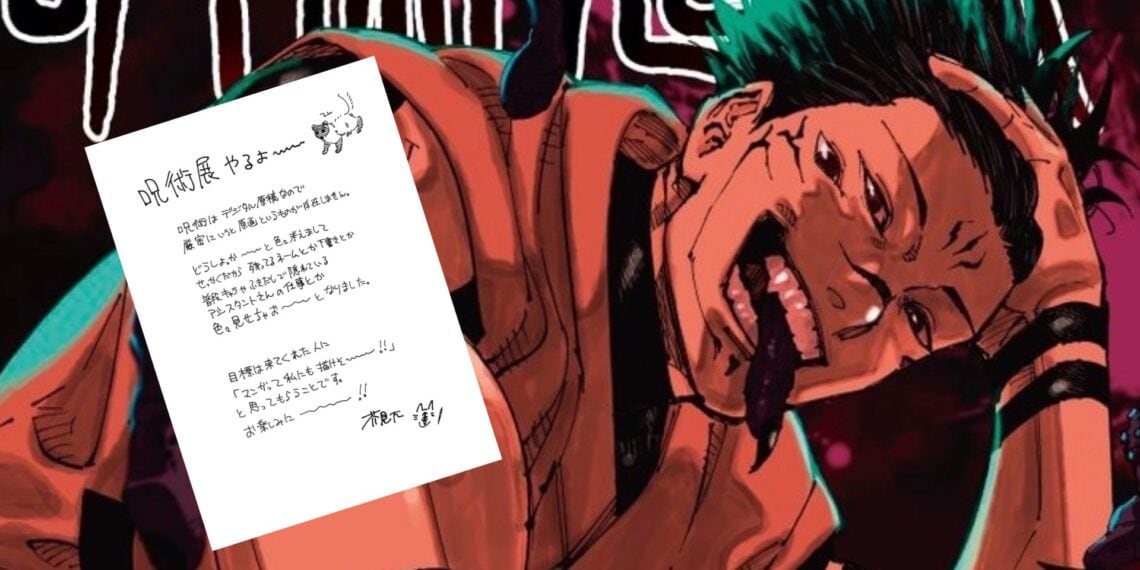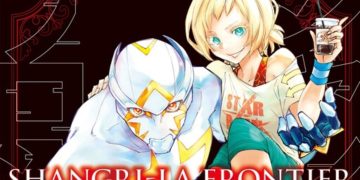Voice actor Yuma Uchida recently shared a notable update from Jujutsu Kaisen creator Gege Akutami during a fan event panel.
In Akutami’s statement, he hinted that after over a decade of supernatural adventures, curses, and demon battles, his action-packed manga about young sorcerer Yuji Itadori may be reaching its final arc and conclusion in the coming year.
Specifically, Akutami suggested the 2023 Jump Festa convention could be the last one where Jujutsu Kaisen makes an appearance, implying its manga storyline is hitting its final climactic chapters.
However, many fans of the series are also wondering if this is because of the recent news about the threat to multiple manga artists, including Gege Akutami, or the backlash that he has faced after killing Gojo.
Jump Festa is an annual manga industry event that celebrates upcoming content from the top Shonen Jump series.
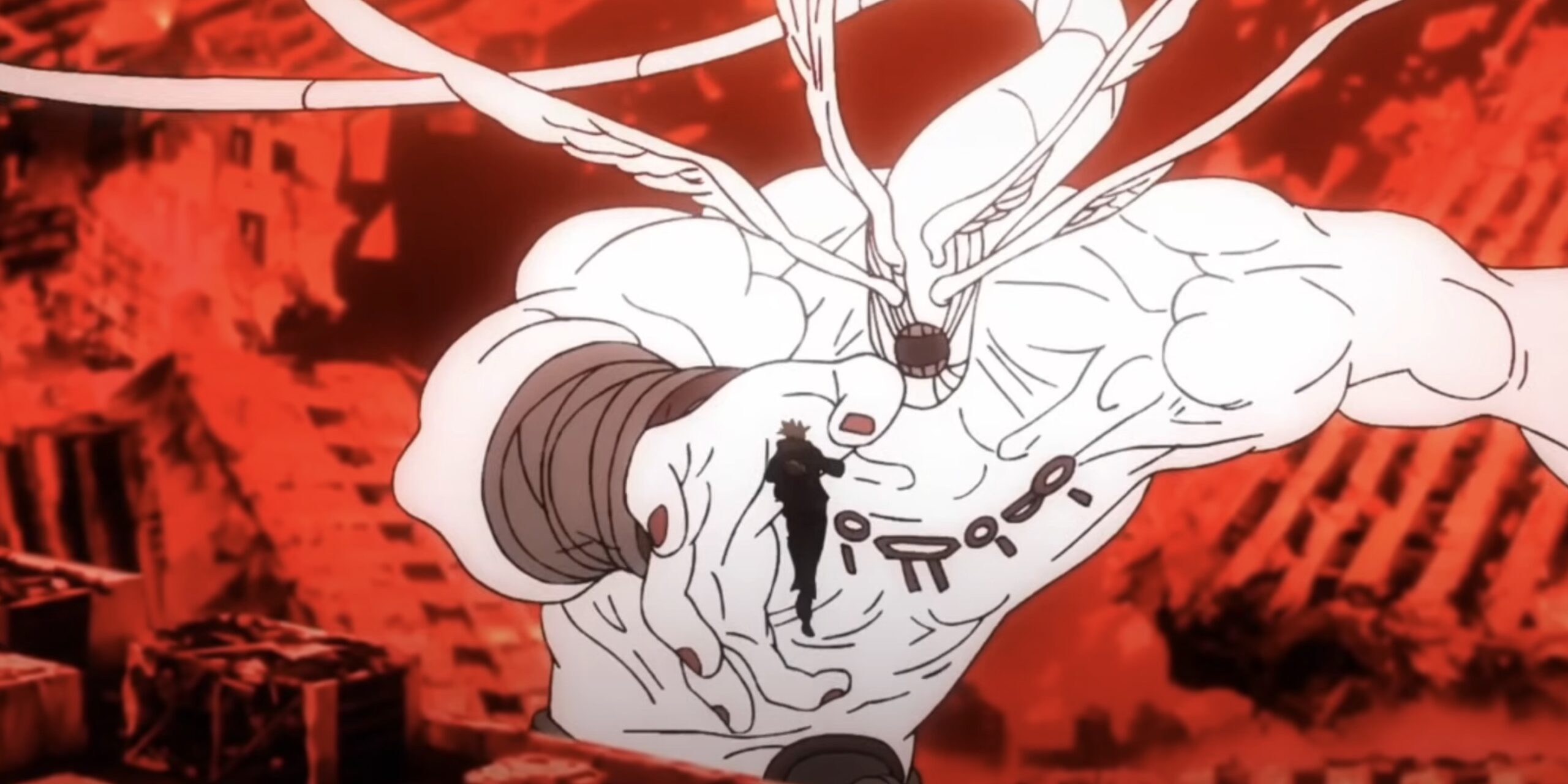
So Akutami seems to believe his long-running manga will reach its endgame in 2024. There are a few narrative developments that likely prompted this belief from Akutami.
The main antagonist, Sukuna, has finally been fully resurrected, immediately raising the stakes.
Additionally, some major characters have been impactfully and shockingly killed off recently. Both of these plot shifts signify the manga’s central conflict is culminating. Of course, predicting the exact conclusion of such a popular ongoing manga is quite difficult.
But based on the rapidly accelerating pace of pivotal developments, Akutami appears confident that after over a decade of publication, Jujutsu Kaisen likely only has about one more year of storytelling left before he intends to complete its mythology and bring the curtain down on the series sometime in 2024.
Jujutsu Kaisen Manga Is Ending Probably Because Of Threats To Author’s Life
Recently, the popular ongoing manga and anime series Jujutsu Kaisen held a panel event featuring several of the show’s voice actors.
They revealed new cover art and reported the manga has now sold over 90 million copies globally, putting it on track to pass 100 million soon and cementing its status as one of the highest-selling manga ever.
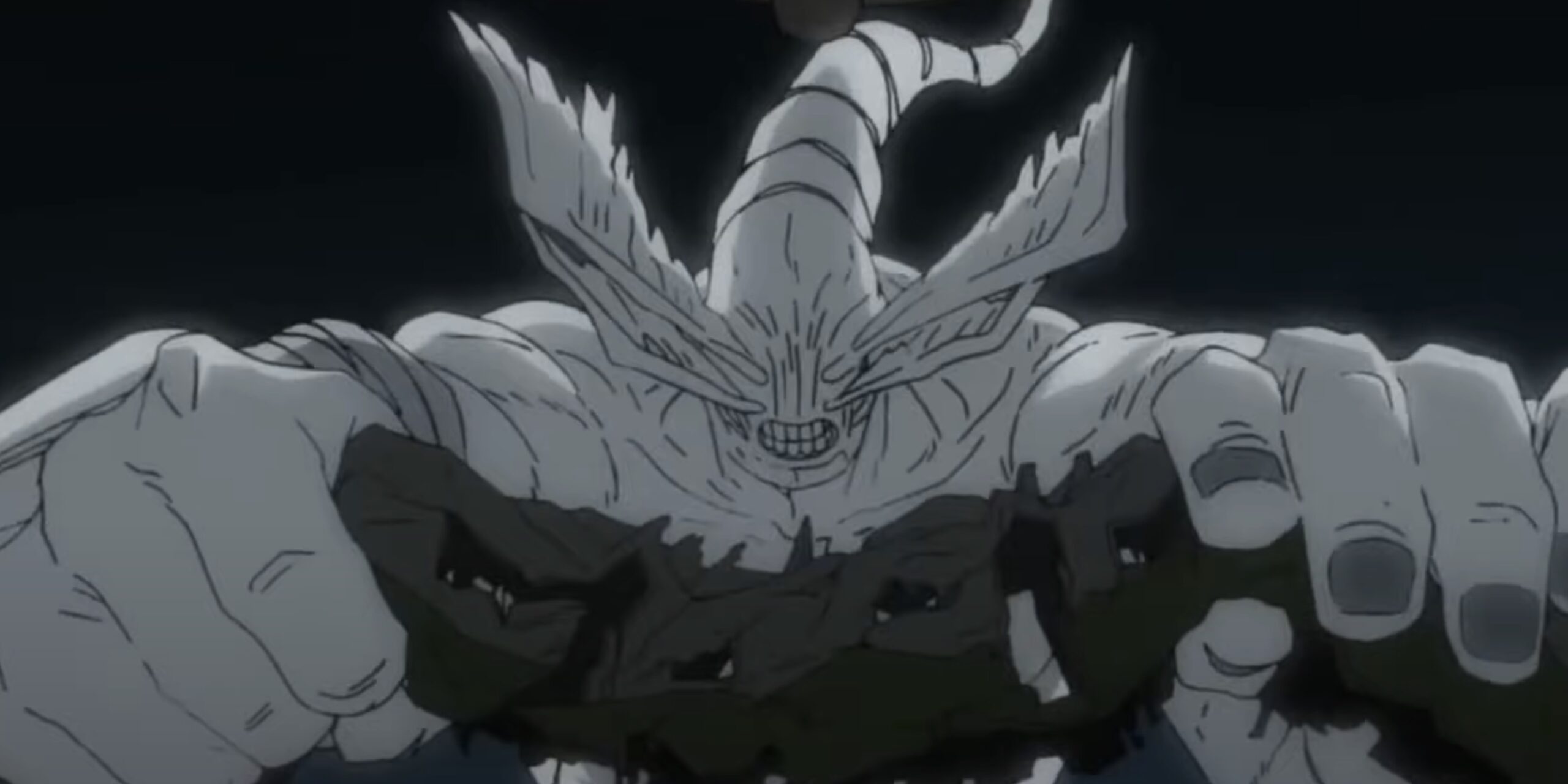
The voice actors also presented a dramatic reading teaser of an upcoming climactic battle between heroes Gojo and Sukuna. This gave fans a sneak peek at major events still to come in the final arcs.
However, creator Gege Akutami also shared a concerning message. He reiterated his belief that despite its popularity, the series is reaching its final chapters and will likely conclude at some point in 2024.
So, while fans eagerly await the anime’s upcoming fight animations and the eventual resolution of the conflict with villain Sukuna, they know the story probably only has about one more year left before wrapping up.
Disturbingly, threats of violence, including death threats, may be influencing Akutami’s decision to end the series.
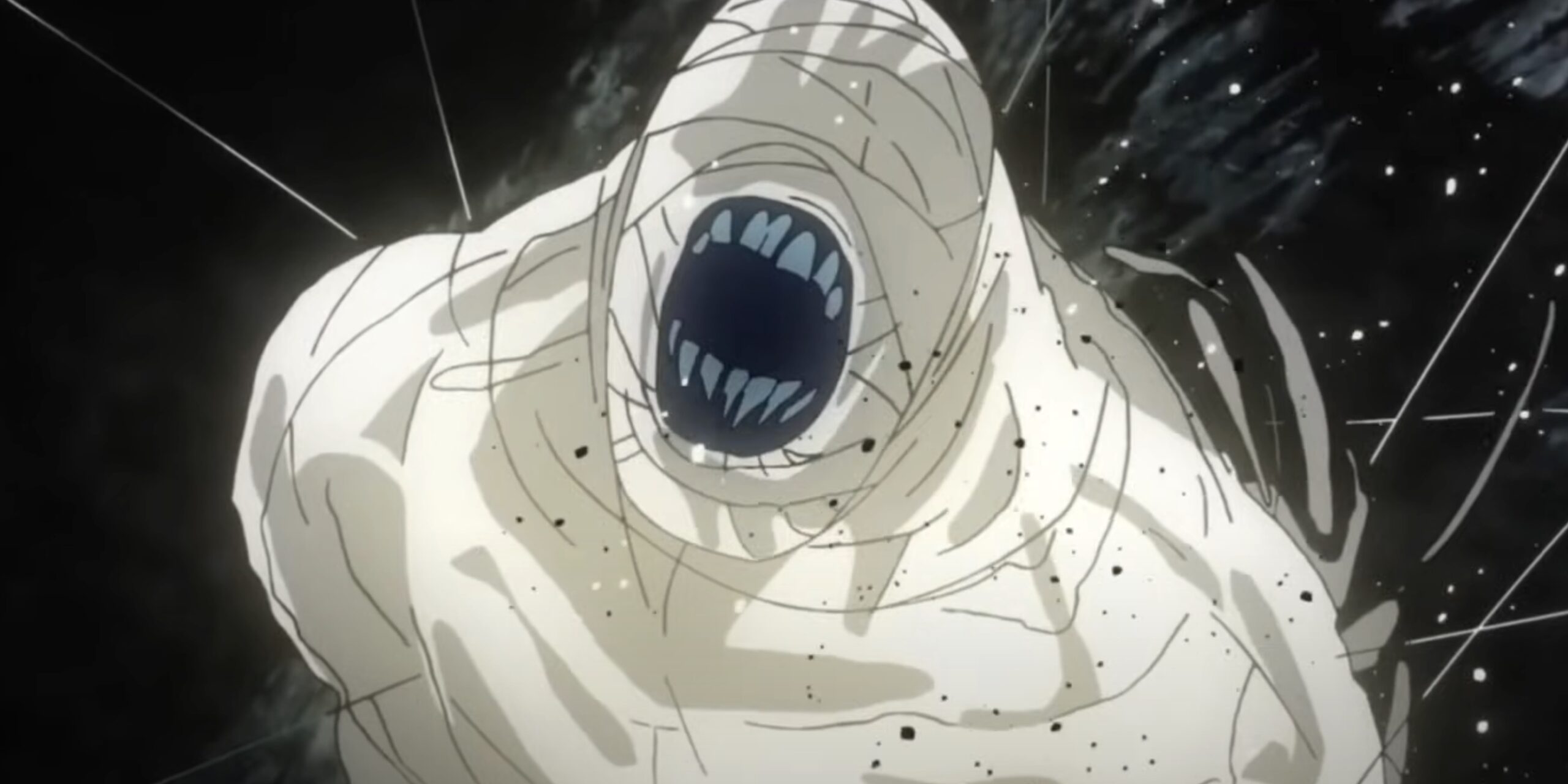
Recently, one of the lead animators for Jujutsu Kaisen’s second anime season became the target of intense backlash over their work on the show.
After animating an additional scene focused on the character Todo in crossdress, the animator was bombarded with hostile harassment and threats.
This animator even felt the need to apologize just for doing their job and bringing the story to life. No entertainment professional should face such aggression or life-endangering attacks over disliked scenes or characters.
This incident reflects very poorly on certain extreme segments of the fan community who fueled this toxicity.
One can only hope the threatened animator recovers and that fans strive to promote civil discussion in the future.

But between facing threats himself and seeing his staff threatened over creative decisions, Akutami may feel ending the manga soon is the safest decision before the situation escalates further.
It serves as a sobering reminder that creators are real people who deserve basic respect.
While thoughtful critique is reasonable, vicious harassment endangers lives and discourages quality entertainment. So, threats from fans may be robbing the world of more Jujutsu Kaisen chapters.
Tracing the Shonen Tradition of Culminating Confrontations
While the news of the popular manga and anime series approaching its finale in the next year is undoubtedly disappointing for many dedicated fans, this timing does follow conventions of the shonen genre.
Creator Gege Akutami has structured the Jujutsu Kaisen story and intricate lore from the start to build up to an epic, consequential confrontation between the heroes of the jujutsu sorcerer world and the immensely powerful cursed spirit Sukuna as the ultimate central antagonist.
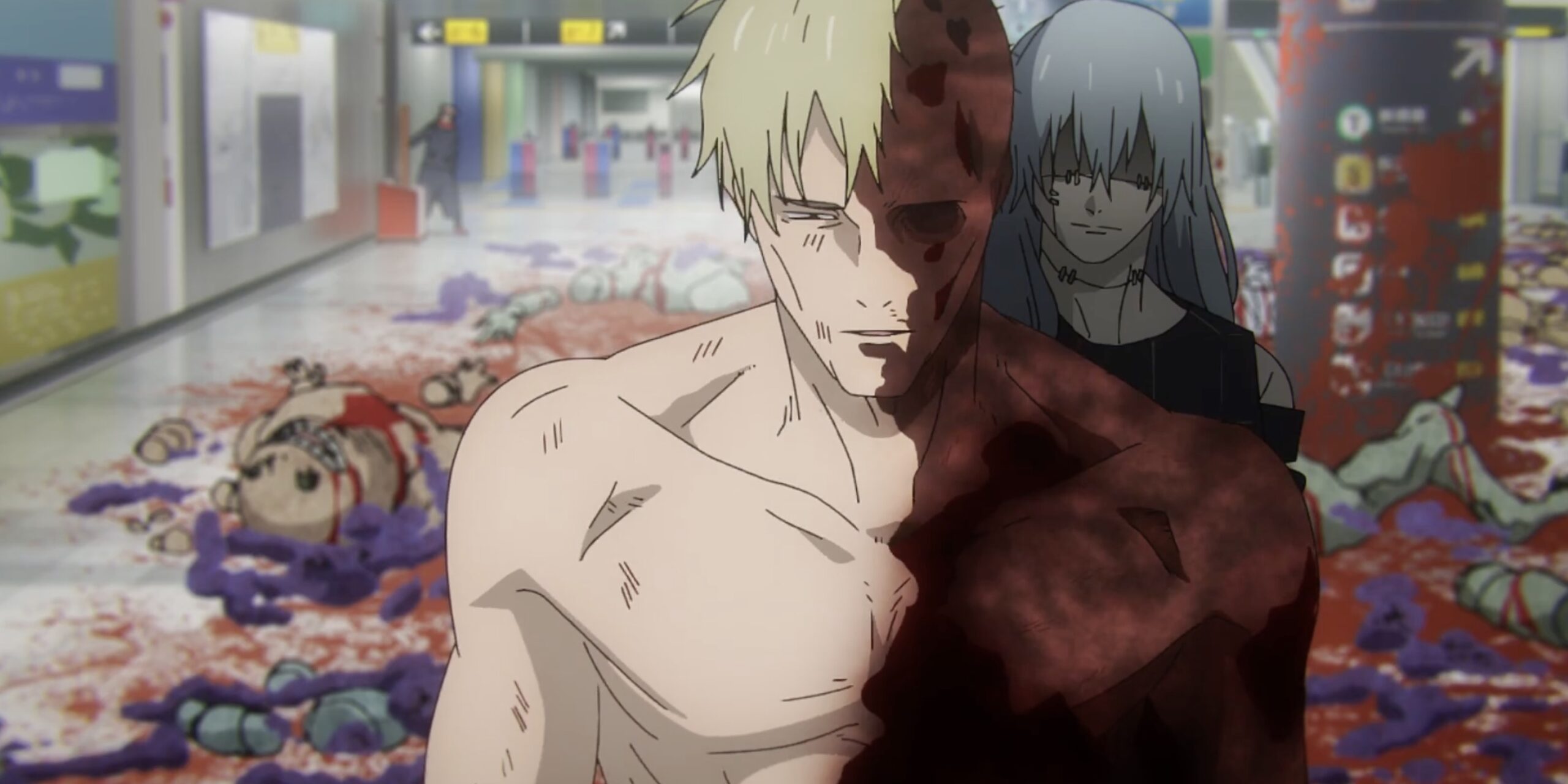
Most beloved shonen manga and anime feature this familiar narrative trajectory – the central protagonists slowly strengthen their abilities over time specifically to prepare for a final, all-out duel against the strongest villain threat at the very climax.
Sukuna has lurked in the background since the early chapters as a looming force of destruction, gradually amassing greater influence.
So now that he has fully revived within the main character Yuji’s body, it narratively fits this to signal the beginning of the endgame saga.
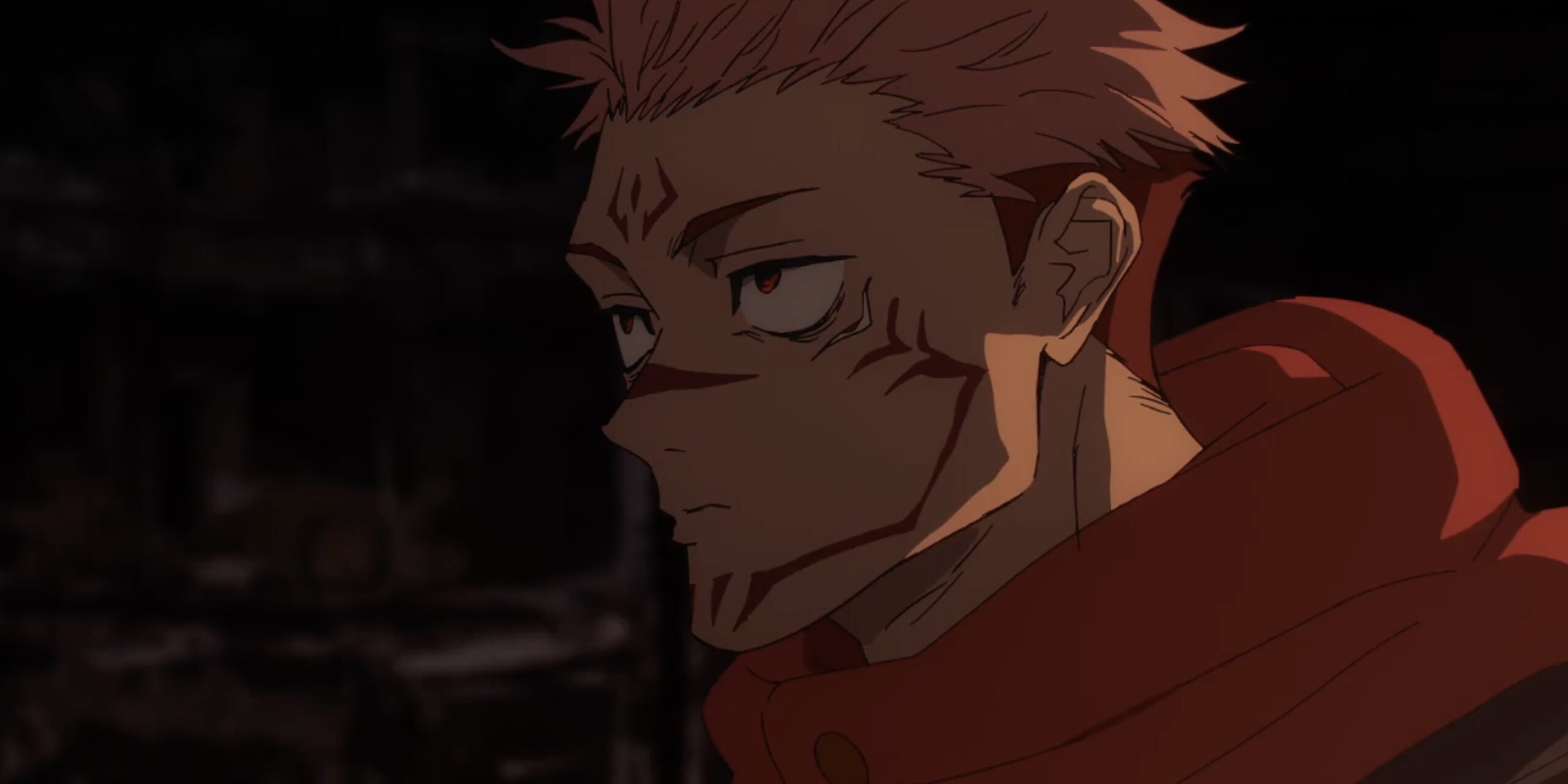
Of course, some comparable Shonen series have extended their run close to the climax by suddenly introducing new major adversaries just when the central conflict seemed to be on the cusp of resolving.
However, that kind of common last-minute narrative swerve would probably undermine years of careful build-up in Jujutsu Kaisen, specifically around Sukuna as the ultimate mythical harbinger of ruin to be defeated.
As the clear pinnacle boss villain, introducing another major demon or curse now would feel redundant and shoehorned strictly to prolong the story.
Gege Akutami and the Ethical Imperative of Personal Safety Amidst Rising Popularity
As Japanese pop culture phenomena like manga, anime, and VTubers have exploded in worldwide popularity, the creators behind these imaginary worlds have increasingly favored concealing their true identities from the public eye.
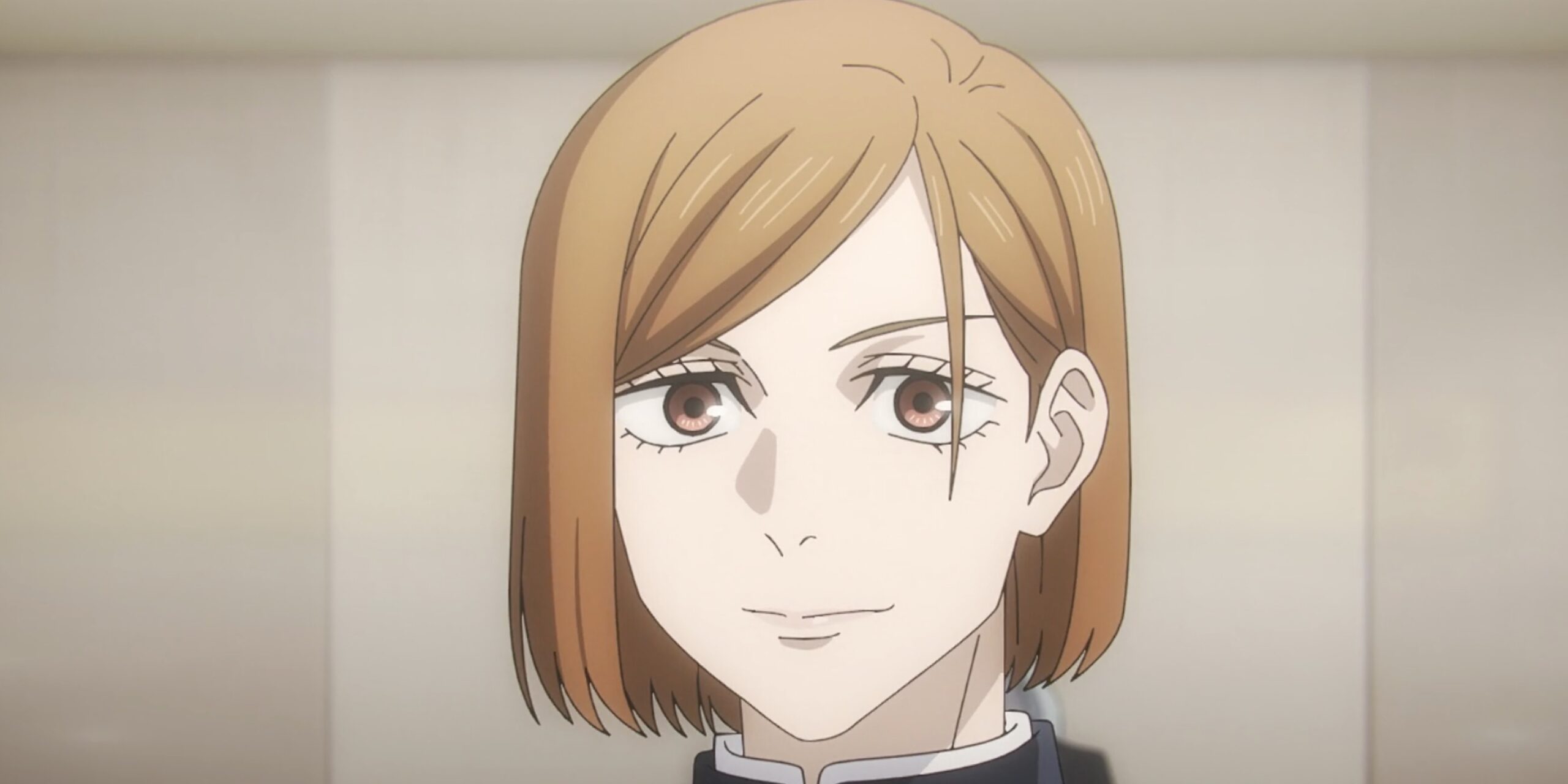
Despite the celebrity-like status of these fictionalized personalities and stories reaching millions of fans, the actual human beings behind the drawings, videos, or avatars often remain unnamed and unseen.
While some enthusiasts express irritation over lacking the ability to connect creative work with a definite face or real name, many respect an artist’s personal choice around privacy and boundaries as an ethical right.
This intrinsic desire for anonymity likely stems from introverted personalities or simply wishing to let imaginative workflow be unconstrained by cameras and public expectations.
However, in the case of Jujutsu Kaisen, the incredibly popular manga author Gege Akutami may have additional reasons for cherishing privacy.
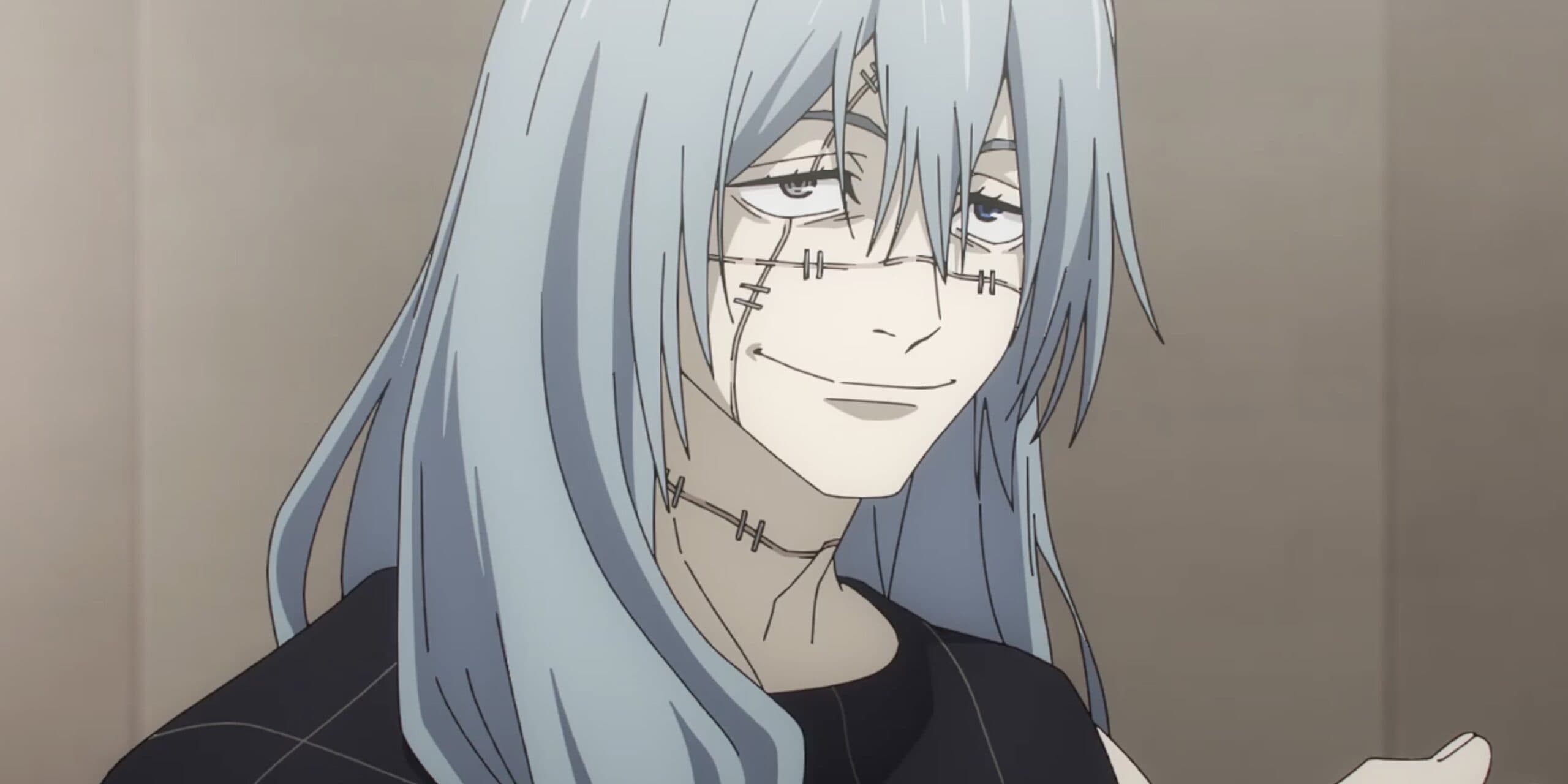
As covered previously, threats of violence and even death threats have been directed at those involved in the franchise by extreme segments of the fan community.
So, in addition to basic creative comfort, concealed identity also serves as protection.
Given the harassment members of his staff have already endured over disliked creative decisions, Akutami likely favors anonymity to shield both himself and loved ones from potential harm.
While public interest in a celebrated manga is understandable, nothing overrides individual safety and consent.
So Akutami possibly opting to conclude Jujutsu Kaisen soon due to escalating threats follows ethical reasoning.
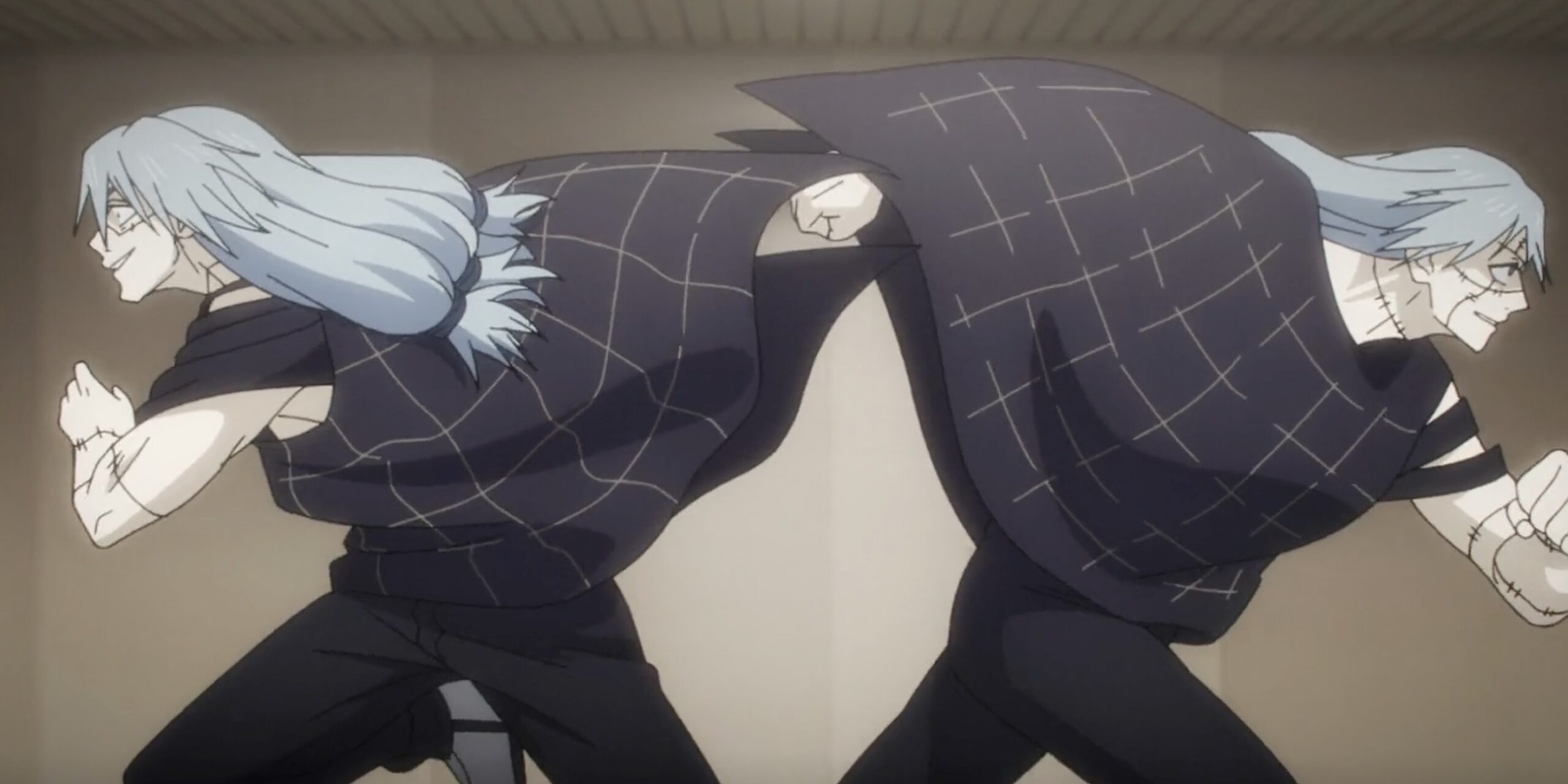
No matter how beloved the stories, fans must respect the real human life and rights of the artist behind the imaginary worlds.
Balancing Financial Transparency and Artistic Anonymity in Japan’s Manga Industry
Japan recently implemented a new “qualified invoice” system aimed at increasing financial transparency between businesses, contractors, and creative talent like manga artists.
By legally mandating that all contractual comic work be formally registered with tax agencies using real names rather than long-used pseudonyms or aliases, the process intends to ensure proper income documentation while closing potential tax loopholes.
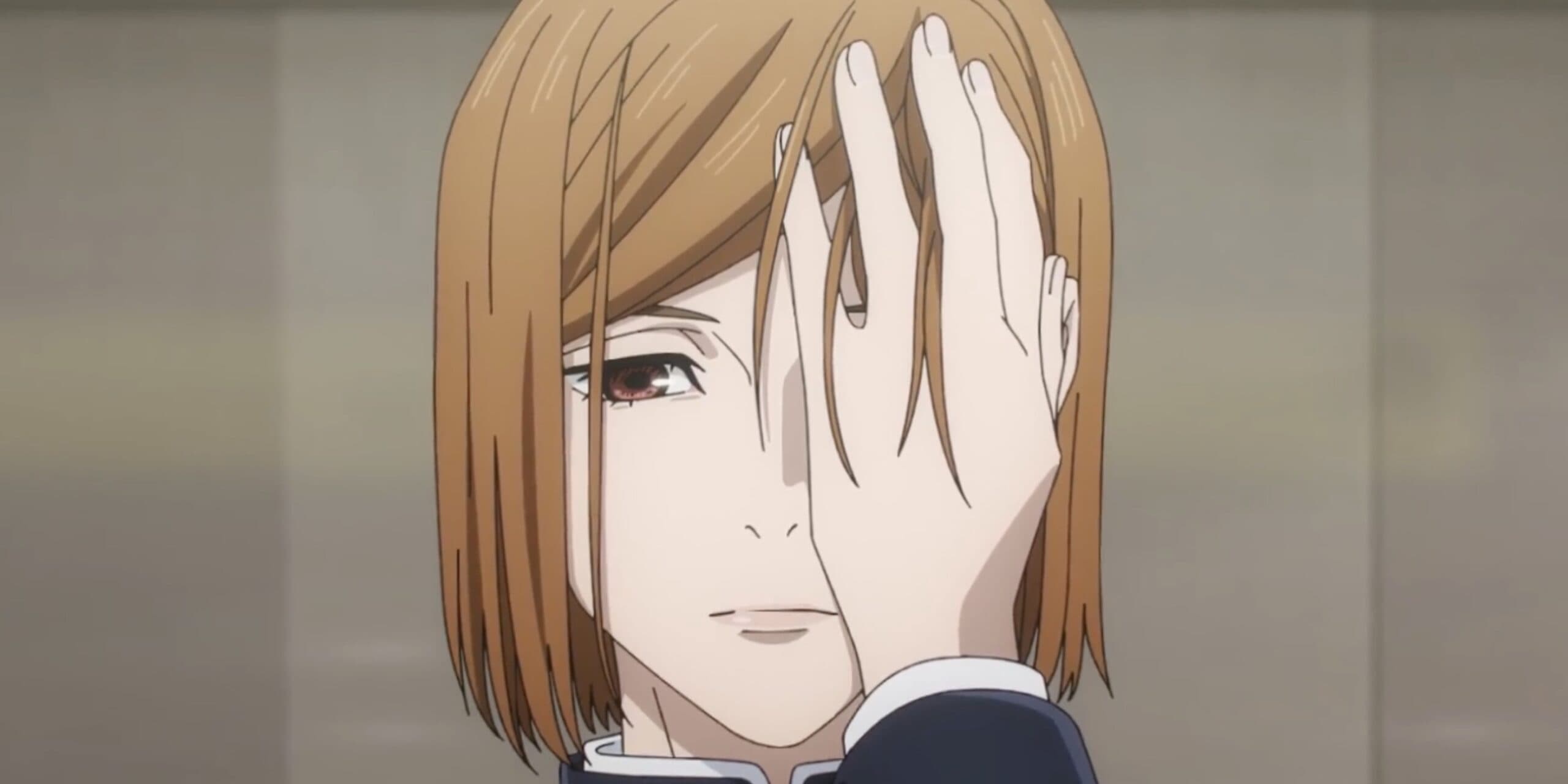
However, critics argue serious ethical issues arise in the policy regarding privacy and overreach.
Creators now face unprecedented scrutiny over both finances and closely guarded identities previously preserved solely to focus on their creative craft, not navigate public notoriety.
While streamlining tax compliance is a reasonable government interest in theory, in practice, the abrupt policy change may disproportionately affect manga authors, singers, directors, and other artistic talent in Japan, relying on years of cultivated anonymity both out of personal preference and to deter potential harassment.
A complex question arises whether administrative ease should truly supersede historical, and artistic liberties and freedom of choice.
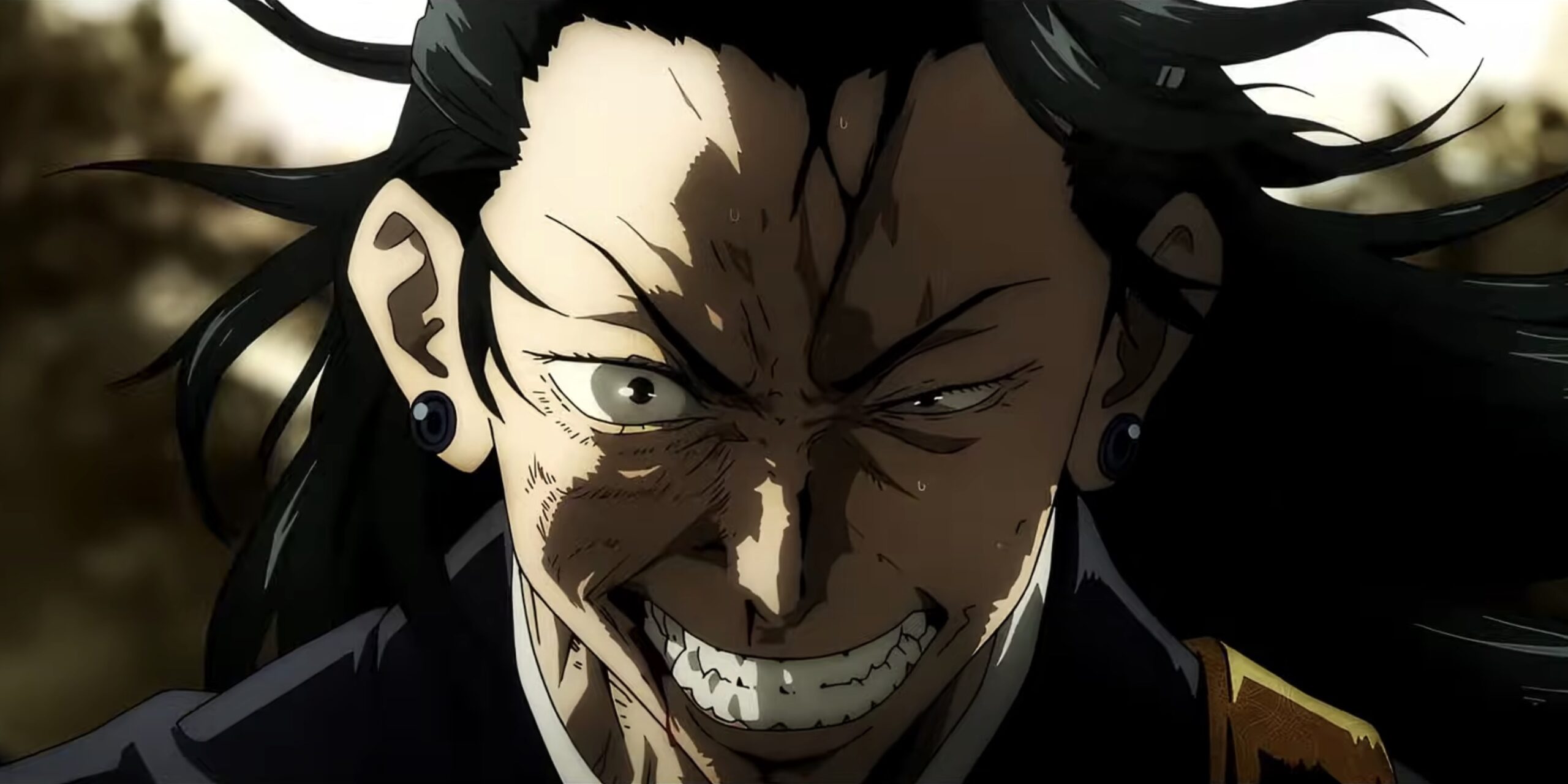
If left unchecked, these mandated identity revelations could enable the very victimization and harassment pseudonyms have long protected against, whereas established pen names have harmed no one.
Fans worldwide empathize with the distressing dilemma these changes pose, destabilizing the careers of artists many have come to deeply admire and feel connected to through their work.
The debate provokes nuanced discussions around censorship, freedom of expression, and society’s simultaneous obligations to nurture imagination as well as regulate financial lawfulness.
There are likely no perfect solutions that will satisfy all interests. But renowned manga pioneers undoubtedly deserve a voice in this matter amidst risks many may soon unwillingly confront simply as a cost of doing business under their own name.


